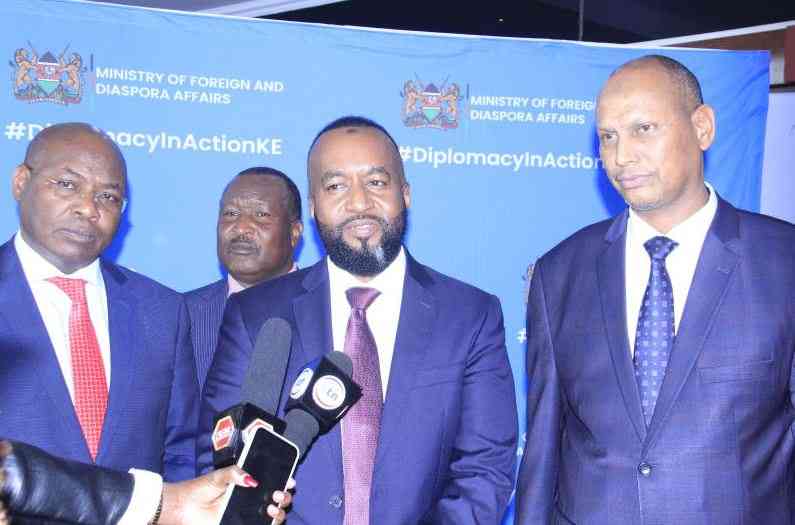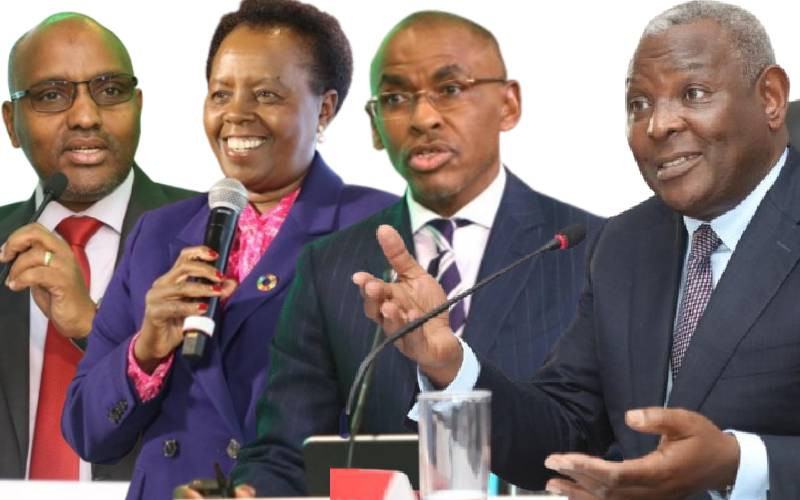
There is no doubt that Kenya needs a strong cybercrime law. The rapid growth of the country’s digital economy has made it a prime target for cyber threats including financial fraud, identity theft, misinformation, and cyberbullying. As more Kenyans embrace mobile banking, e-commerce, and digital platforms, risks to personal data and national security have increased.
So, it is only logical to have a law that not only protects citizens and businesses from losses but also builds trust in the digital space. But the Computer Misuse and Cybercrimes (Amendment) Bill, 2024, in its current form, isn’t that law.
The Bill, which seeks to amend the Computer Misuse and Cybercrimes Act 2018, will curtail free speech online as the government is likely to use it against those it views to be using the digital space to criticise it. Already, this has happened. Remember Rose Njeri? Just for creating an app that Kenyans could use to submit comments on the Finance Bill 2025, she was arrested, held in a police cell for days, and then arraigned. Luckily, she was finally released.
But Albert Ojwang’, the teacher and blogger who was arrested after a senior police officer allegedly accused him of publishing defamatory online content, wasn’t as lucky. Mr Ojwang died at the hands of the police in a police cell in Nairobi. In both cases, the Computer Misuse and Cybercrimes Act 2018 was used to justify the arrests.
The level of censorship of legitimate speech online will intensify if the Bill is passed as it is. The Bill grants sweeping powers to the National Computer and Cybercrimes Coordination Committee (NC4) to shut down websites and applications if they “promote illegal activities, child pornography, terrorism, and extreme religious and cultic practices”.
This is deeply concerning. Whereas no one disputes the need to block any sexual abuse material and stern action to be taken against content promoting acts of terrorism, such a provision could lead to abuse and overreach by NC4 due to its vague terminology, absence of oversight, or lack of limitation on the period of blockage. It means any speech online or on social media deemed to “promote illegal activities” could be used as a basis to block an entire website or an application indefinitely.
The provision raises several questions: Who decides what counts as “extreme religious” content? On what evidence and what standard? With what right of appeal? Given the Bill is silent on such issues, it is hard not to see it as a window to censorship.
Human rights groups have rightly warned that the proposals contravene international standards on freedom of expression. ARTICLE 19, for instance, has called for the withdrawal of the Bill, arguing that vague offences and administrative blocking powers fail the necessity and proportionality tests at the heart of human rights law.
It will be remembered that in November 2024 the Bill sailed through First Reading, and by April 2025 Parliament’s committee was collecting stakeholder concerns, many of which pointed to the same defects. We should heed these calls.
Kenya has been down this road before. The 2018 Act attracted many court cases, leading to the suspension of sections of the law perceived to restrict freedom of speech as enshrined in the Constitution.
The NC4 blocking clause is not the only problematic part. The Bill widens the scope of “cyber-harassment”, including where conduct is likely to cause someone to commit suicide. As has been pointed out by legal experts, the inclusion of the phrase “likely to cause a person to commit suicide” seeks to enhance protection against cyber harassment and its psychological effects.
However, it’s ambiguous on the “cause”, and may result in arbitrary enforcement, which could lead to the criminalisation of public discourse, activism, or political speech. It could be abused to target critics, bloggers, and other content creators, especially in a heated political climate. It should be refined to target clear cases of harassment and establish specific thresholds for liability, ensuring that it aligns with constitutional rights and due process.
As we discuss the implications of the Bill, let’s not forget that digital rights are human rights.
Kenya needs a cybercrime law that combats genuine threats like fraud and child exploitation without silencing legitimate speech. Parliament should reconsider the Bill in its current form and work with citizens, experts, and human rights defenders to draft amendments that protect both security concerns and freedom. Let’s fix the Bill by aligning it to the Constitution, which guarantees freedom of expression – even online.
Stay informed. Subscribe to our newsletter








